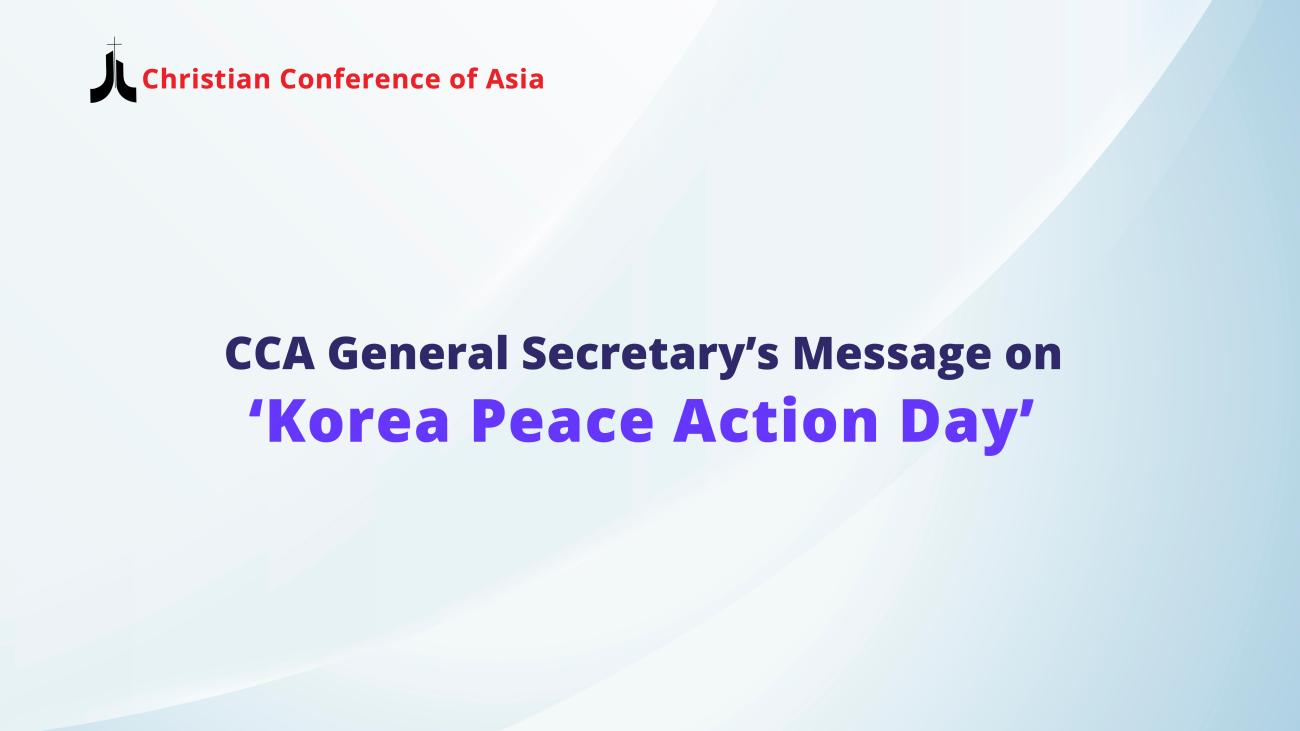Every effort towards preventive diplomacy for defusing tensions in the Korean peninsula needs to be ensured, says CCA General Secretary

Chiang Mai, Thailand: Reiterating the Christian Conference of Asia’s (CCA) support for Korean churches’ calls for a permanent peace treaty to replace the 1953 armistice, CCA General Secretary Dr Mathews George Chunakara stated, “Every effort towards preventive diplomacy through meaningful dialogue will defuse military tensions and reduce nuclear risks.”
Through a video-recorded message shared on the occasion of the 71st Anniversary of the Korean War Armistice and the observance of Korea Peace Action Day organised by the National Council of Churches in Korea (NCCK) and Korea Peace Action, the CCA General Secretary commended the enduring efforts of the Korean churches and noted that the Peace Rally scheduled for 27 July would be helpful in sustaining attention on the dire need to promote peace and reconciliation in the region.
“The division of Korea into ‘North’ and ‘South’ more than seven decades ago symbolizes one of the most painful political and ideological tribulations of the Cold War era. We urge all Christians across Asia to continue to pray for peace, reconciliation, and reunification of the divided Korean peninsula, and to also pray for the leaders and citizens of both Koreas that they may be guided by wisdom and compassion in their pursuit of lasting peace,” said Dr Mathews George Chunakara.
Although the Korean War was said to have “technically” ended on 27 July 1953, with the signing of an armistice, the country remains divided.
The East Asia region has been in a stalemate for 71 years that has caused much suffering to the people living in both North and South Korea, the stakes being raised higher than ever with the growing nuclear weapon capacity in the region.
The video and full text of the message can be found here:
CCA General Secretary's Message on Korea Peace Action Day
CCA General Secretary's Video Message on Korea Peace Action Day










